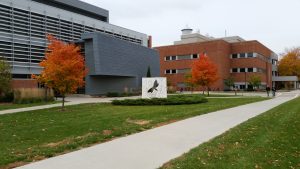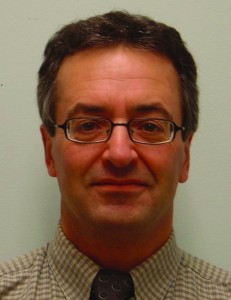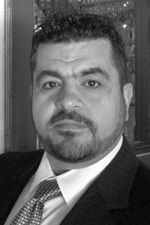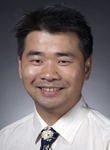During the months of July through September 2016, Iowa State University’s Department of Electrical and Computer Engineering received many external research awards from the Department of Energy (DOE), the National Science Foundation (NSF) and other groups.
 Major grants from the DOE include an award of $1,162,477 for a project entitled “Autonomous Tools for Attack Surface Reduction,” with Manimaran Govindarasu as Principal Investigator (PI) and Venkataramana Ajjarap and Doug Jacobson as Co-Principal Investigators (Co-PI). The total anticipated amount of the award is $2,981,103. The DOE also awarded $1,318,903 for a project called “Novel Light Extraction and Utilization, Organic LED (OLED) Core Technology Research: Enhanced Light Extraction from Low Cost White OLEDs (WOLEDs) Fabricated on Novel Patterned Substrates,” with Ruth Shinar as PI and Rana Biswas and Joseph Shinar as Co-PIs.
Major grants from the DOE include an award of $1,162,477 for a project entitled “Autonomous Tools for Attack Surface Reduction,” with Manimaran Govindarasu as Principal Investigator (PI) and Venkataramana Ajjarap and Doug Jacobson as Co-Principal Investigators (Co-PI). The total anticipated amount of the award is $2,981,103. The DOE also awarded $1,318,903 for a project called “Novel Light Extraction and Utilization, Organic LED (OLED) Core Technology Research: Enhanced Light Extraction from Low Cost White OLEDs (WOLEDs) Fabricated on Novel Patterned Substrates,” with Ruth Shinar as PI and Rana Biswas and Joseph Shinar as Co-PIs.
A variety of projects received grants from the NSF, with one highlight being $4,054,476 for the project “WI-ECSEL Scholarship Program (Women in Electrical, Computer, and Software Engineering as Leaders,” with Joseph Zambreno as PI and Doug Jacobson, Phillip Harrison Jones, Lisa Larson, Mani Mina, Sarah Rajala, Sarah Rodriguez, Diane Rover and Mack Shelley as Co-PIs.
For more information on grants received during the months of July through September, visit this link: https://www.ece.iastate.edu/external-research-awards-july-september-2016/.



